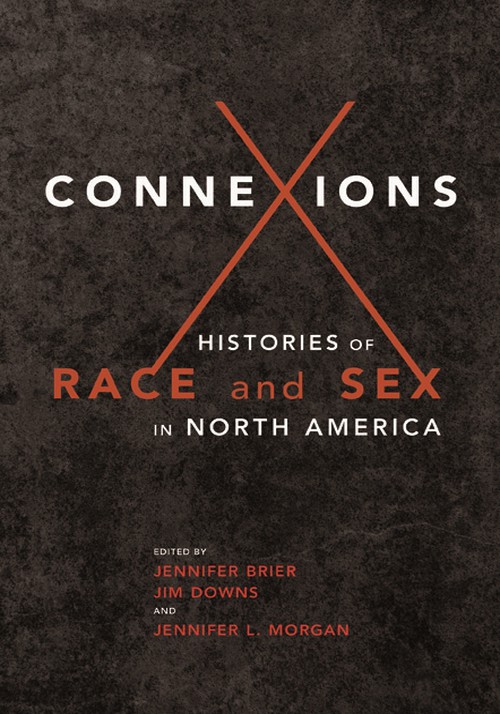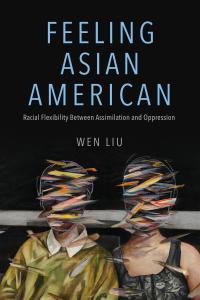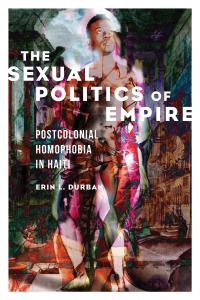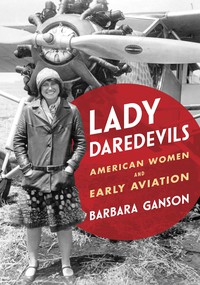
Connexions
About the Book
Connexions investigates the ways in which race and sex intersect, overlap, and inform each other in United States history. An expert team of editors curates thought-provoking articles that explore how to view the American past through the lens of race and sexuality studies.Chapters range from the prerevolutionary era to today to grapple with an array of captivating issues: how descriptions of bodies shaped colonial Americans' understandings of race and sex; same-sex sexual desire and violence within slavery; whiteness in gay and lesbian history; college women's agitation against heterosexual norms in the 1940s and 1950s; the ways society used sexualized bodies to sculpt ideas of race and racial beauty; how Mexican silent film icon Ramon Navarro masked his homosexuality with his racial identity; and sexual representation in mid-twentieth-century black print pop culture. The result is both an enlightening foray into ignored areas and an elucidation of new perspectives that challenge us to reevaluate what we "know" of our own history.
Contributors: Sharon Block, Susan K. Cahn, Stephanie M. H. Camp, J. B. Carter, Ernesto Chávez, Brian Connolly, Jim Downs, Marisa J. Fuentes, Leisa D. Meyer, Wanda S. Pillow, Marc Stein, and Deborah Gray White.
About the Author
Jennifer Brier is an associate professor of history and of gender and women's studies, and director of the Program in Gender and Women's Studies, at the University of Illinois at Chicago. She is the author of Infectious Ideas: U.S. Political Responses to the AIDS Crisis. Jim Downs is an associate professor of history at Connecticut College and the author of Sick from Freedom: African-American Illness and Suffering during the Civil War and Reconstruction. Jennifer L. Morgan is a professor in the Department of Social and Cultural Analysis and the Department of History at New York University and the author of Laboring Women: Reproduction and Gender in New World Slavery.Reviews
"The contributions are first rate. Connexions would be an important book to assign in graduate seminars on race or sexuality in several disciplines. For undergraduates, a lighter sampling of the essays might be appropriate. However Connexions is used, readers will agree that the project of seeing 'race and sexuality as driving forces of historical research' is necessary."--Journal of American HistoryBlurbs
"In this innovative, interdisciplinary collection of essays, Downs, Morgan, and Brier update the insights and methods of intersectionality for a new generation of scholars whose questions interrogate the heteronormative and racial practices that have marginalized black female and queer historical subjects."--Kathleen Brown, author of Foul Bodies: Cleanliness in Early America
"This is a timely and important volume that encourages temporal conversations about the intersection of race and sexuality. The essays are bold and thought provoking and consider underexplored areas of historical inquiry. The editors and contributors should be commended for doing a superb job of drawing connections over three centuries, thereby inviting readers to critically interrogate this contested history. The multi-disciplinary scope of this anthology will generate a body of new scholarship in the field of race, gender, and sexuality studies."--Daina Ramey Berry, author of Swing the Sickle for the Harvest Is Ripe: Gender and Slavery in Antebellum Georgia
"This volume takes its readers on a sweeping journey from American plantations to the U.S. Supreme Court, from southern households to brothels in Barbados, from the Bible to the Silver Screen, from college campuses in the 1950s to mass marches in the 1990s, and from journal entries to African American popular print magazines to propose new methodologies to more deeply understand the vexed relationships between race, gender, class, and sexuality. At each turn, the authors urge readers to reconsider the roles of fantasy and history in the construction of beauty, same-sex desire and relationships, kinship, and property. This collection's greatest achievement is to broaden readers' approaches to intersectional identities and to enable readers to re-imagine the humanity of the actors in this volume."--Allyson Hobbs, author of A Chosen Exile: A History of Racial Passing in American Life








